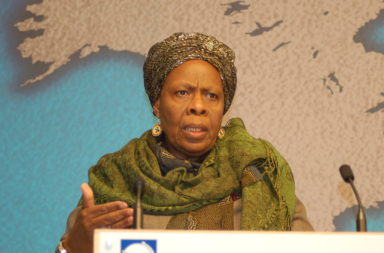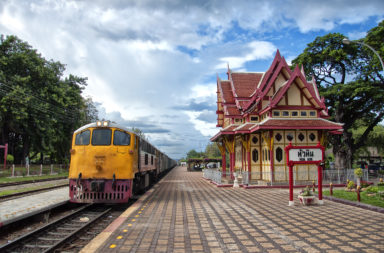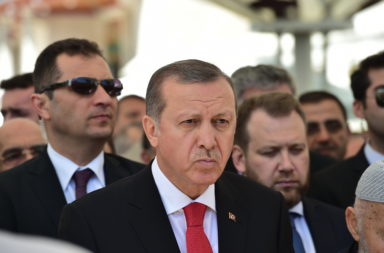Chaotic reports of armed vehicles occupying the streets of Zimbabwe’s capital suggest that the African country is now in the control of army forces.
- Zimbabwe military forced seize state TV and deny access to government offices as tanks lockdown capital Harare.
- Army denies coup against President Robert Mugabe’s government , claims to seek “pacify a degenerating, social, and economic situation”.
- President Mugabe “safe and sound” but reportedly under house arrest amidst reports that Grace Mugabe has fled the country.
Confined to his home, Zimbabwean dictator Robert Mugabe is watching as the army seizes control of a country that he has dominated since 1980 despite statements denying that the enforced takeover of national media and streets around the capital is infact a coup.
Crisis in Zimbabwe
While troops and tanks patrol Harare, statements from the armed forces point towards a targeting of “criminals” while outsiders suspect that a regime change is in fact taking place as a result of the controversial dismissal of former Mugabe deputy Emmerson Mnangagwa, leaving the Mugabe’s wife as the likely successor and next in chain-of-command.
Finally, we call on the South African government to prepare to welcome President Mugabe for political asylum. He must be allowed to come to South Africa so that a peaceful transition can indeed take place. #Zimbabwe
— EFF (@EFFSouthAfrica) November 15, 2017
At present the picture remains unclear as to who exactly is leading the armed forces that have locked down Zimbabwe’s capital and their motives.
Access to verified facts and witnesses that accurately describe the situation on the ground is proving limited, with the BBC already falling foul of unintentionally quoting a Twitter parody account initiating Mugabe.
BREAKING: There is an ongoing military coup in #Zimbabwe . Please pray for the people of Zimbabwe… pic.twitter.com/EKmEqtkRNz
— Obianuju Ekeocha (@obianuju) November 15, 2017
What Happened?
Zimbabwe’s ruling party were quick to accuse the armed forces occupying of treason on Tuesday as troops took up positions around the capital.
The incident is thought to be a dramatic escalation of a succession dispute with President Robert Mugabe and the purge of his political rivals in ZANU-PF party.
On Monday military chief General Constantino Chiwenga threatened to intervene, stating his willingness to “step in” to end a purge of supporters of sacked vice president Emmerson Mnangagwa, and Harare was occupied 24 hours later.
While the catalyst for action seems clear, there are major unanswered questions as to the fate of its controversial leader.
What Will Happen to Mugabe?
93-year-old Robert Mugabe has ruled Zimbabwe with an iron grip since it gained independence from the UK in 1980, coming under heavy international criticism from human rights groups for alleged torture and political repression.
The flamboyant Grace Mugabe has been the first lady of Zimbabwe since marrying President Robert Mugabe in 1996, known for her expensive shopping habits that have faced criticism in a African country under severe economic hardship.
There are reports of military movements in harare and on roads leading to the capital. Armed soldiers can be seen in this truck moving in harare. pic.twitter.com/OZcko7ErM1
— Liam (@DAE_Highjump) November 14, 2017
Her extravagant lifestyle has been a source of discomfort in Zimbabwe where many face severe economic hardship due to severe droughts and the effects of a disastrous land reform programme.
What We Know About The Military Forces
Soldiers occupying roads in Harare claim to be members of the Zimbabwe Defence Forces, made up of the Zimbabwe National Army (ZNA) and the Air Force of Zimbabwe.
The power of military generals has always proved a significant threat to Mugabe’s power, who claimed in 2007 that a plot had been foiled an alleged coup involving numerous high-ranking officers.
BREAKING: Gunfire that took place at Minister Chombo of #Zimbabwe when trying to resist military arrest this morning #Zimbabwecoup #Mugabe pic.twitter.com/A09JPuP72D
— Nandi?Cakes (@nandi_cakes) November 15, 2017
What Now for Zimbabwe?
It seems that Mugabe has made a fatal error in underestimating the effect of dismissing his deputy and step one foot too far for the country’s military leaders.
In Harare, some people appeared to greet the news with delight, with locals telling news cameras “We are going to have a good life, we are looking forward to Christmas, because of what has happened.”
“I want to thank the general for removing this tyrant. He was ruling the country as if it belonged to his family,” said another Harare resident.
Full Address By Occupying Forces
“Following the address we made on November 13, 2017, which we believe our main broadcaster, the Zimbabwe Broadcasting Corporation and The Herald were directed not to publicize, the situation in our country has moved to another level. Firstly, we wish to assure the nation that His Excellency the President of the Republic of Zimbabwe, and commander-in-chief of Zimbabwe Defence Forces, Comrade RG Mugabe, and his family are safe and sound and their security is guaranteed.
“We are only targeting criminals around him who are committing crimes that are causing social and economic suffering in the country in order to bring them to justice.
“As soon as we have accomplished our mission, we expect that the situation will return to normalcy. To the civil servants, as you are aware, there is a plan by the same individuals to influence the current purging that is taking place in the political sphere to the civil service. We are against that act of injustice and we intend to protect every one of you against that.
“To the judiciary, the measures under way are intended to assure that as an independent arm of the state you are able to exercise your independent authority without fear of being obstructed as has been the case with this group of individuals.
“To our members of parliament, your legislative role is of paramount importance for peace and stability in this country and it is our desire that a dispensation is created that allows you to serve your respective political constituencies according to democratic tenets.
“To the generality of the people of Zimbabwe we urge you to remain calm and limit unnecessary movement. However, we encourage those who are employed and those with essential business in the city to continue their normal activities usual. Our wish is that you enjoy your rights and freedoms and that we return our country to a dispensation that allows for investment, development and prosperity that we all fought for and for which many of our citizens paid the supreme sacrifice.
“To political parties we urge you to discourage your members from engaging in violent behavior.
“To the youth we call upon you to realize that the future of this country is yours. Do not be enticed with dirty coins of silver. Be disciplined and remain committed to the ethos and values of this great nation.
“To all churches and religious organizations in Zimbabwe we call upon you and your congregations to pray for our country and preach the gospel of love, peace, unity and development.
“To both our people and the world beyond our borders, we wish to make it abundantly clear that this is not a military takeover of government. What the Zimbabwe Defence Forces is actually doing is to pacify a degenerating political, social and economic situation in our country, which if not addressed may result in a violent conflict.
“We call upon all the war veterans to play positive in ensuring peace, stability and unity in the country.
“To members of the defense forces, all leave is canceled and you all to return to your barracks with immediate effect.
“To our respected traditional leaders, you are our custodians of our culture, customs, traditions and heritage and we request you to provide leadership and direction to your communities for the sake of unity and development in our country.
“To the other Security Services: We urge you to cooperate for the good of our country. Let it be clear that we intend to address the human security threats in our country. Therefore any provocation will be met with an appropriate response.
“To the media; we urge you report fairly and responsibly.
“Thank you.”




